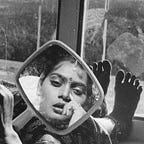I’m only discovering Prof Sophie Oluwole, who passed away on Christmas eve eve at age 83. Her last name means God has entered the home or God has come. I wasn’t ignorant of Yoruba religion, I was slowly learning about it, sidetracked by all the astrology I am learning (that I was ignorant of) and astrological references that fail to mention any part of Africa but Egypt.
“The striking resemblance which the Yoruba religious system bears to that of the ancient Greeks […]: Olorun, the sky-god proper, now being gradually displaced by the more anthropomorphic Obatala, resembles Uranus, who was displaced by Kronos. In Greek mythology Kronos married his sister Rhea, the earth, and the Yoruba myth makes Obatala marry Odudua, who also represents the earth, though the qualities of Aphrodite appear to predominate. […]” A. B. Ellis or the preface of their book. And Dr. Duane Hamacher said something similar about Aboriginal Australian astronomy [over 60,000 years old] and Greek astronomy lore. Greek in any case did not come up with what they taught, there are astrologers/astronomers who learned in Egypt. It is inevitable if one has learned astrology prior to see the similarities and to see that ‘As above, so below’ comes from Afrikan concepts. Prof. Sophie Oluwole said above that Ifa is mathematics, particle physics, etc. and she is a philosophy professor, she compares Orunmila to Socrates.
A Yoruba person or someone who learned the religion, has written a different version to Ellis’ book in an article and is with the Astrological Association of America. 2020 edit: I have now found a few astrologers and practitioners of Ifa like @oshunsdawta, @ehimeora , @melanatedmomma on twitter. And I note their warnings about drawing parallels to the very complex Ifa with frankly simplistic worldviews and tools that we use, astrology or mythology.
I quote from the Handbook of Yoruba Religious Concepts: “In regard to traditional systems in general — and specifically in Yoruba religion —
it is said that they are pagan and heathenistic. Clearly, the absurdity of such views are relative to the lack of spiritual-religious substance of those who hold them. To say that one religion is pagan is to say that they are all pagan. Inscribed within the very scriptures of religious cultures throughout the world there exist variants and strata of substantial recognition of insubstantial forms of feelings, thought processes, supernatural beings, transcendental worlds, and forces that direct the creation and destruction of all things.
These forms materialize as structural tangible objects shaped by the culture that expresses them. Statues, symbolic religious artistic creations, and sacred physical positions, all demonstrate the human need and ability to make concrete the multiplicity of realities that exist within the universe.
Those beings which are deemed angels by western definition are known to the
Yoruba as Orisha. The aspirant is directed to see the Orisha as emanations of the One Source or Oludumare. The Orisha are not simply mythological constructions designed to satisfy the lower mind and intent of humans. As “angels” in all religious context they (the Orisha) were created and sent by Oludumare to assist in the spiritual evolution of humankind. Burnham states, “Islamic angels fell after the creation of humans, but Christian angels fell before the creation of the human race.”⁴ Yoruba angels never fell in respect to divine grace.
The Nok culture was visited by the “Yoruba group,” between 2000 and 500 B.C. The group was led, according to Yoruba historical accounts, by King Oduduwa, who settled somewhat peacefully in the already established Ile-Ife — the sacred city of the indigenous […]
Orunmila’s physical origins are shrouded in ancient legend, however, it is be- lieved that he was born of humble West African parents. To the people of the land he was clearly recognized as a divine child, and although poor and crippled, he ex- pressed from the onset divine wisdom and attributes. His great intelligence superseded all known teachings and his divine nature was seen as a blessing of the angelic forces. As Orunmila matured he traveled across the continent of Africa sharing wisdom with the prophets and sages of the land. There is evidence of Orunmila’s influence in ancient Khamet/Egypt, and too, in the Essence community of the Judeo-pre- Chris-tian era. Yet, the potency of Orunmila’s teachings were directed to the Yoruba people centered around the city of Ile-Ife. It was here, in Ile-Ife, that Orunmila built his temple on the sacred hill called Oke Tase. It was here in Ile-Ife that Orunmila gained heavenly status. In the translation of his name is the meaning “only Heaven knows the way to salvation,” clearly indicating his prophet-messianic status among those who believe in his being.”
